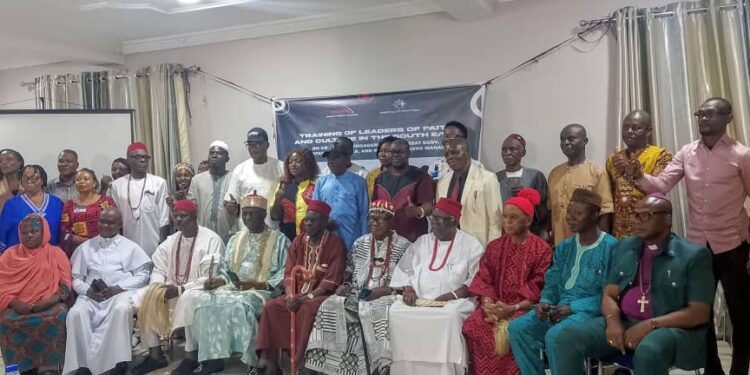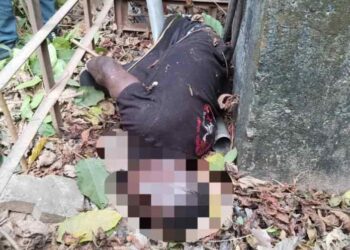Chinedum Treasure
Leaders of Faith and Culture in Anambra State have been charged to throw their weight behind the campaign against Sexual and Gender Based Violence, SGBV in the area.
Facilitators made the call in Awka during a one-day training and community engagement organized by West African Broadcast and Media Academy (WABMA) and supported by Ford Foundation, under its Amplifying Leaders of Faith and Culture Voices Project.

The training was designed to build the capacity to identify and handle SGBV cases in their spheres of influence without injuring the interest or violate the rights of the survivors.
Addressing participants on the occasion, the Community Mobilization Officer at the Media Development Foundation, Mrs Nnenna Anozie, expressed worry at the growing incidents of SGBV which according to her has made everyone a suspect.
“Due to the pervasive nature of this issue, noone really can be excluded from scrutiny. Looking at statistics of happenings in our society, everyone is a suspect, because violence can stem from unexpected sources, often those within a survivors circle of trust.
“We see fathers, uncles, wives, mothers, brothers, very close relatives, colleagues and trusted allies who perpetrate SGBV. This is violence committed against a person because of his or her gender, forcing another person to do something against his will through violence, coercion, threats, deception, cultural expectations, or economic means.
She listed prevailing acts of violence to include: sexual harassment, child marriage, female genital mutilation and human trafficking.

“As a society, it is important to be observant and vigilant, the assumptions about who might or might not commit such acts should not becloud our sense of caution” she warned.
In a presentation, WABMA’s Chief Operating Officer, Mrs Chidiebere Njoku-Chukwu, identified environment, misinterpretation of religion and culture, poverty, gender inequality, weak enforcement of the law and drug abuse as some of the causes of SGBV.
She noted, “the training would equip participants with practical strategies for SGBV prevention, advocacy, community engagement and media collaboration to enhance visibility.
Njoku-Chukwu in another presentation stressed the need for proper documentation of SGBV cases which she noted helps in keep tabs on trends and success or otherwise of interventions.
Dr Ambrose Igboke, Chairman, Guild of Public Affairs Analysts, urged leaders of faith and culture to cultivate cordial working relationship with the media to amplify their voices and actions against the menacing trend.
He also urged the media to work with the religious and traditional leaders as well as civil society organizations to promote awareness, accountability, and a commitment to creating a safe environment for everyone.
“I must tell you, not much can be achieved without the media. The media is so powerful that we need t work closely with the practitioners to be able to get everyone in the society aware of SGBV and what measures to take in preventing it or handling incidents.
“Addressing SGBV requires collective responsibility, education, and proactive measures to dismantle harmful norms and support survivors effectively,” he said.
The interactive session afforded leaders of faith and culture the opportunity to seek deeper insight into the problem and the containment measures.
Participants at the training were Traditional rulers, leaders of the Muslim and Christian communities, civil society organizations, the police and the media.






